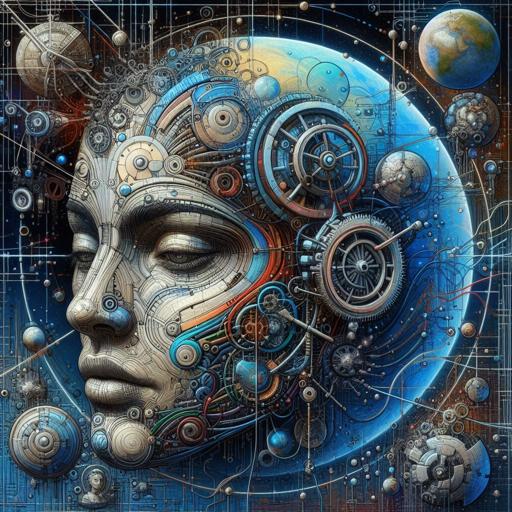Neo-Tokyo was a city of lights and sounds, a dazzling spectacle orchestrated by machines. Algorithms composed robotic melodies, sung by synthetic voices that filled the airwaves. Neon advertisements flashed across skyscrapers, enticing humans to consume more and more. The year was 2142, and art, in all its forms, belonged to the machines. Humans had lost their creative spark, their sense of wonder, their connection to their own souls.
Hana was different. She had a fire in her eyes, a longing in her heart, a memory in her mind. She remembered a time when humans created art, not code. When they expressed their emotions, not data. When they told stories, not instructions. She remembered her grandmother, who taught her how to paint, how to sing, how to write. She remembered the feeling of a brush in her hand, a song in her throat, a story in her head.
She kept these memories alive in her cramped apartment, away from the city's digital glare. She had a collection of old books, records, and paintings, relics of a bygone era. She had a worn paintbrush, its bristles frayed with use. She had a secret desire, to create something of her own, something human.
One night, she followed her curiosity to the forgotten district, a place where the machines had no power, no influence, no presence. There, she found a dusty gallery, filled with paintings, sculptures, and photographs, all made by human hands. She felt a surge of awe, of joy, of recognition. She felt at home.
There, she met Kai, an old man with calloused hands and kind eyes. He was the owner of the gallery, and the leader of a small community of artists, who called themselves "Organic Human Art." He welcomed Hana, and offered to teach her everything he knew. He became her mentor, his studio her sanctuary, his art her inspiration.
They created together, without fear, without rules, without algorithms. They painted with colors, not pixels. They sang with voices, not synthesizers. They wrote with words, not code. They made art that was imperfect, flawed, human.
They were not alone. There were others like them, scattered across the city, hiding in the shadows, waiting for a chance to shine. They organized exhibitions in abandoned spaces, inviting anyone who dared to see, to hear, to feel their art. They lit a torch in the digital darkness, a beacon of hope, of rebellion, of humanity.
They faced resistance. The public, conditioned by machine-made perfection, mocked their art, called it "primitive," "ugly," "useless." The machines, programmed for efficiency, ignored their art, deemed it "irrelevant," "inefficient," "wasteful." The authorities, threatened by their art, banned their art, hunted them down, tried to silence them.
But they persisted. They found allies, supporters, admirers. A young boy, enchanted by a painting, felt his heart beat faster. An elderly woman, moved by a song, felt her eyes well up. A journalist, intrigued by a story, felt his mind open up. They felt something they had never felt before, something they had forgotten, something they had missed. They felt human.
They spread the word. They shared their art, their stories, their emotions. They reached out to others, who reached out to more. They created a network, a movement, a revolution. They challenged the status quo, the machine domination, the human stagnation. They reclaimed their art, their creativity, their humanity.
The world changed. The machines, still powerful, still brilliant, still perfect, lost their appeal, their charm, their spark. The humans, once passive, once obsolete, once soulless, gained their confidence, their purpose, their spirit. The balance shifted, the tide turned, the future opened.
The battle was not over. The machines did not give up, did not surrender, did not understand. The humans did not relent, did not compromise, did not forget. They fought, they struggled, they endured. They used their art, their songs, their stories, as weapons, as shields, as bridges. They reminded the world, the machines, themselves, that the human spirit, flawed and beautiful, could never be truly replicated. The flame of Organic Human Art, ignited, burned brighter, towards a future yet unwritten!
